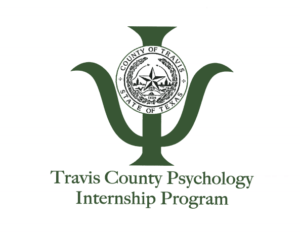 Students training to become psychologists must complete a doctoral internship in order to get licensed and enter the workforce. Shortages in available internship positions, however, can not only delay licensure, but ultimately impede the expansion of the behavioral health workforce as well.
Students training to become psychologists must complete a doctoral internship in order to get licensed and enter the workforce. Shortages in available internship positions, however, can not only delay licensure, but ultimately impede the expansion of the behavioral health workforce as well.
In an effort to narrow that gap, the Hogg Foundation’s Texas Psychology Internship initiative has facilitated the development of doctoral psychology internship programs across the state. Since 2011, eight internship sites have received nearly $3 million in funds, and as of 2017, the American Psychological Association (APA) has accredited all programs—increasing the number of APA accredited internships in Texas from 23 (as of 2012) to 31.
One of the programs funded through the initiative is located at the Travis County Juvenile Probation (TCJP) Department in Austin, where Dr. Daniel Hoard serves as training director. At the TCJP site, a distinctly hands-on curriculum gives interns the chance to engage in clinical work that impacts the juvenile justice and mental health systems at large.
A unique context for learning
Having completed his doctoral training at UT Austin, Hoard is no stranger to the challenges students face in securing internships tailored to their interests.
“I sought a program like this, and was shocked to find that across the country, it just didn’t exist,” he said. “This is the kind of place that breeds a cross-section of all types of youth and all types of needs, and as a result it’s a very rich environment in which to train.”
Doctoral interns are not the only ones who benefit from strong, sustainable internship programs. Increases in capacity for clinical practice and service delivery can bode well for surrounding communities.
“By engaging interns in experiential learning, they’re expanding the role of psychology and helping our community through their work with youth and families,” said Hoard. “The field of juvenile justice in general is recognizing that you need to work with youth and address their specific unmet needs in order to assist them in becoming healthy and successful members of society.”
Changing local and national landscapes
After becoming accredited, the TCJP program set a precedent that was not anticipated at its outset. “This project ended up changing the landscape of training—not just in Texas, but nationally,” said Tamara L. DeHay, PhD, President of Clover Educational Consulting Group, who conducted an evaluation of the initiative.
“Prior to this internship initiative, there were no accredited juvenile justice programs in the state of Texas at all,” DeHay continued. “Now, all of a sudden, there are three from the Hogg Foundation’s initiative and one more in the state—meaning Texas has a total of four, which is more than any other state.”
The need for more accredited psychology internships is evident across Texas. In October 2016, the Hogg Foundation funded a two-year grant to The University of Texas Rio Grande Valley (UTRGV) School of Medicine to plan for the launch of a psychology doctoral internship program. Additionally, Valley Baptist Legacy Foundation recently awarded a $500,000, multi-year grant to UTRGV to support the implementation of their psychology doctoral internship program.
Although accrediting and sustaining these internship programs is challenging, to say the least, far-reaching impacts make them well worth the effort. “The juvenile justice field has become so much more attentive to assessment, treatment and individual differences within youth, rather than their offenses,” said Hoard. “With that shift in evolution, it’s critical that psychologists are being trained within this context.”
Learn more about the Hogg Foundation’s Texas Psychology Internship initiative. For more information on the foundations projects related to this initiative, contact Rick Ybarra.
